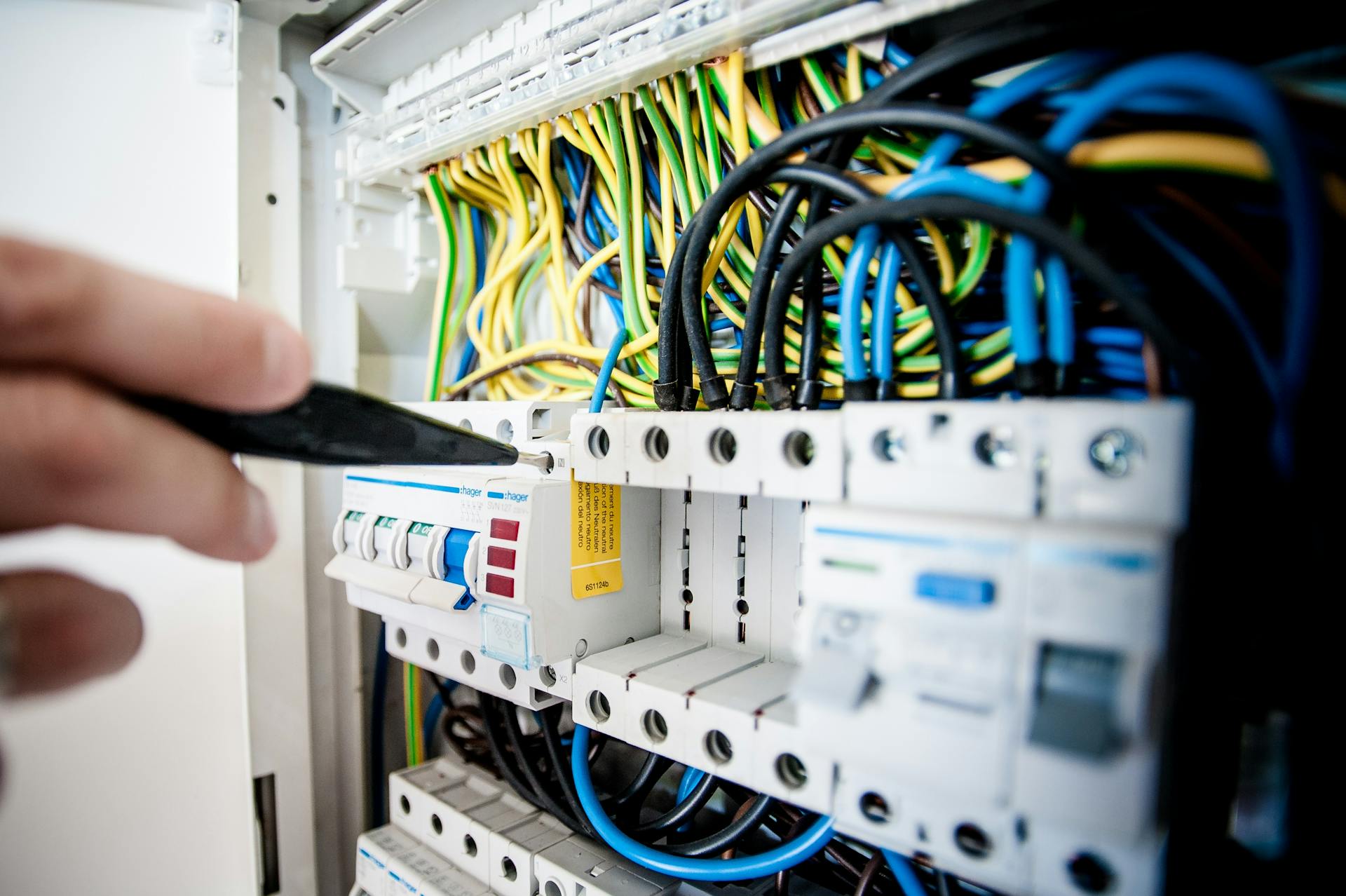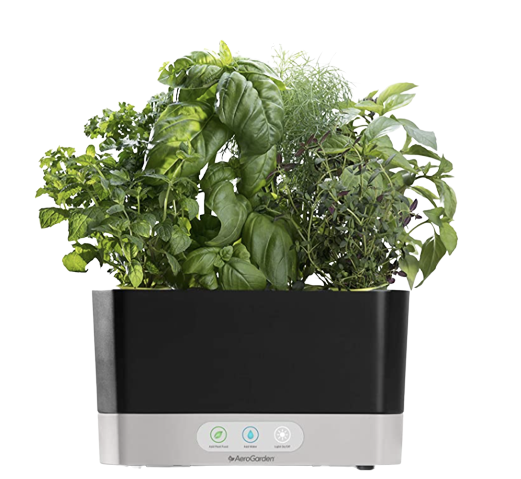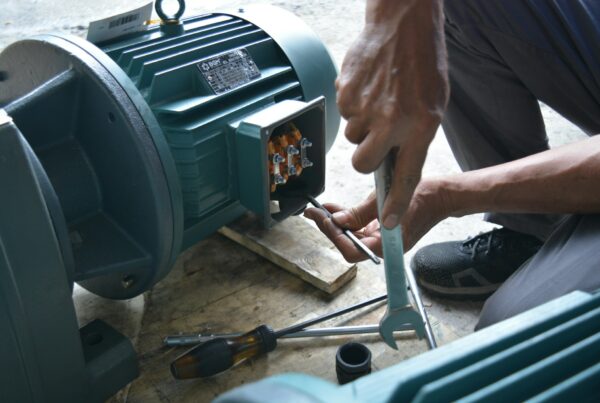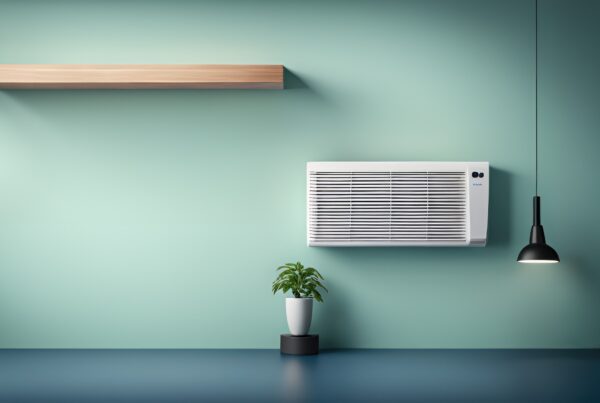Last Updated on February 29, 2024
As a homeowner, you’re responsible for ensuring the safety of your household. One crucial aspect of this responsibility is maintaining electrical safety. Awareness of and adherence to electrical safety practices can prevent accidents and ensure a safe living environment.
To start, here are some tips you should follow:
1. Know Your Home’s Electrical System
Getting to know your home’s electrical system is the first step toward safety. Recognize the location of the circuit breaker or fuse box. This knowledge is vital during emergencies or when you need to cut off power for repairs.
In addition, regularly check the box for any signs of damage or wear. Familiarize yourself with the advanced safety features of switchboard, such as circuit breakers that automatically shut off electricity in case of overload—understanding how these features work can enhance your home’s safety measures.
2. Keep Water Away From Electrical Sources
Water and electricity are a dangerous mix, capable of causing severe injuries or even fatalities. To ensure the utmost safety, keeping appliances away from sinks, bathtubs, showers, and any areas prone to moisture is crucial. Always dry your hands before handling electrical devices to prevent electric shock.
Importantly, in areas where water and electricity are likely to come into contact, installing Ground Fault Circuit Interrupters (GFCIs) offers an additional layer of protection. GFCIs are designed to shut off electrical power instantly if a fault is detected, significantly reducing the risk of shock.
Ensure that both indoor and outdoor outlets in these areas are equipped with GFCIs and that outdoor outlets have weatherproof covers. Together, these practices markedly decrease the risk of electric shock, safeguarding you and your loved ones.
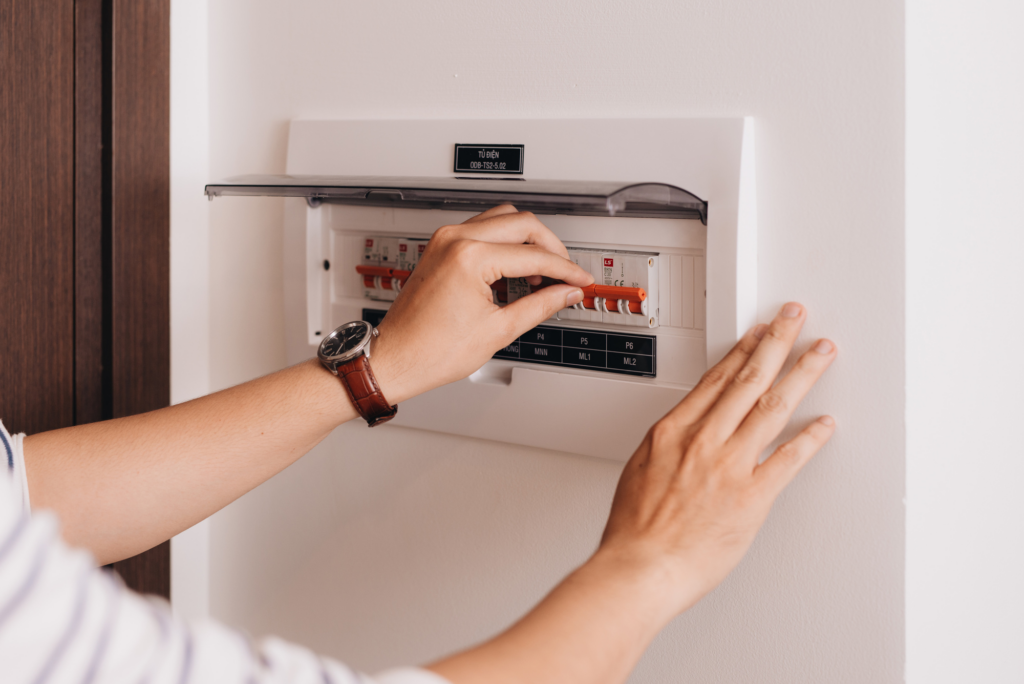
3. Use Appliances Wisely
Home appliances demand respect and attention to maintain safety. Unplug them when not in use to save energy and reduce fire risk. Also, follow the manufacturer’s instructions for operation and care. Here are a few more tips to ensure appliance safety:
- Check for Recalls: Stay informed about any recalls on your appliances. Manufacturers issue recalls for safety issues, which could prevent accidents.
- Don’t Ignore Warning Signs: If an appliance gives off a strange smell, makes unusual noises, or overheats, stop using it immediately. These are warning signs that something’s wrong must be checked.
Overloading outlets with too many devices is a common mistake. Spread out your appliances to different outlets to avoid overburdening a single one. This approach extends the life of your appliances and keeps your home’s electrical system from overloading.
4. Inspect And Deal With Cords And Plugs Safely
Worn cords and damaged plugs present significant safety hazards. Regularly inspect electrical cords for any signs of fraying, cracks, or other wear.
For safety reasons, avoid attempting to repair damaged electrical cords with tape. Instead, use residential electrical solutions to replace them to ensure a safe connection. Additionally, when using electrical appliances, ensure that cords are fully extended to prevent overheating, which can occur when coiled or tightly wrapped.
Also, when unplugging any device, grasp and pull the plug rather than the cord. Pulling cords to disconnect them can damage the plug and the electrical outlet, leading to potential safety risks. Make sure to keep cords away from high-traffic areas. They should also not be trapped under furniture or rugs, which can lead to damage and overheating.

5. Educate Your Family on Electrical Safety
Educating your family about electrical safety is crucial for preventing accidents and ensuring everyone’s well-being. It’s particularly important to supervise young children around electrical devices and to establish clear household rules for electrical safety.
Teach children the dangers associated with electricity in an age-appropriate manner. Ensure they understand why they should not insert objects into outlets and how to use electrical devices safely.
Emphasize the importance of not touching electrical appliances with wet hands and ensure they know to report damaged cords or outlets to an adult immediately. Incorporating these lessons into your family’s daily routine can significantly reduce the risk of electrical accidents at home.
6. Know When To Call a Professional
Certain electrical issues, such as flickering lights, frequent circuit breaker trips, and unusual buzzing sounds from the electrical panel, are clear indicators that professional intervention is necessary. It’s vital to hire a licensed electrician to address these concerns, ensuring the safety and proper functioning of your home’s electrical system.
Furthermore, consider scheduling regular electrical inspections to identify and mitigate potential hazards before they become serious problems, providing an extra layer of safety and peace of mind.
7. Stay Prepared for Electrical Emergencies
Prepare for emergencies by keeping flashlights, batteries, and a first-aid kit accessible. Know how to turn off your home’s power supply. In case of an electrical fire, use a Class C fire extinguisher specifically designed for electrical fires in the United States.
If you’re located outside the US, ensure you have a fire extinguisher appropriately rated for electrical fires according to your local jurisdiction. Never use water to extinguish an electrical fire, as it conducts electricity and can exacerbate the situation.
Conclusion
Practicing electrical safety is an ongoing responsibility. By following these guidelines, you’re not just protecting your property—you’re safeguarding your family’s well-being. Regular checks, cautious use of electrical devices, and professional help, when needed, can prevent most electrical hazards. Stay vigilant to ensure safety in your home.


